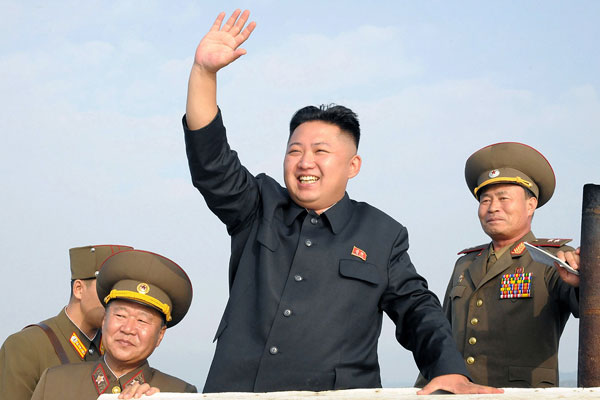North Korea Abandons Armistice…Again
Bruce Klingner /
On March 5, Pyongyang threatened to nullify the 1953 armistice agreement ending the Korean War, raising already heightened tensions on the Korean Peninsula.
The declaration comes amidst large-scale military exercises by North Korea and by U.S. and South Korean forces as well as rumors of impending rocket and nuclear tests. The regime’s threats are consistent with previous North Korean behavior and are meant to intimidate the United Nations Security Council as it deliberates on additional sanctions against Pyongyang for its February nuclear test.
China will be the most receptive to buckling to North Korean threats. Beijing has repeatedly impeded meaningful U.N. action in response to Pyongyang’s violations of U.N. resolutions and acts of war against South Korea. Even when China acquiesced to allowing a U.N. resolution, it watered down provisions and blocked adding violators to the sanctions list.
The Obama Administration should not be intimidated by North Korean tactics and should insist on more effective measures than those contained in previous toothless resolutions. The U.S. should press for including U.N. Charter Chapter 7 provisions enabling militaries and law enforcement agencies to intercept and inspect North Korea ships and planes carrying prohibited items. The U.N. resolution being debated should also be binding on all member nations and include sanctions against all—not just North Korean—complicit banks, businesses, and government agencies.
History Repeats Itself
Perhaps North Korea should check its files. Pyongyang previously declared it had abrogated the armistice ending the Korean War in May 2009 after South Korea joined the Proliferation Security Initiative. At that time, North Korea also nullified all inter-Korean agreements and, just to make sure everyone got the message, threatened war against Seoul. Those actions, as today’s, were taken as the U.N. was deliberating a response to North Korea’s May 2009 nuclear test. The U.N. Security Council approved Resolution 1874 the following month.
North Korea’s pending large-scale military exercise is an annual event known as the Winter Training Cycle. It begins with low-level in-garrison training in December, increasing in echelon until it culminates in a corps-level army exercise or massive multi-service combined arms event in March or April. A South Korean official told reporters that nationwide preparations have been observed for training involving the army, the navy, and the air force that is expected in early March in the East Sea.
Even the bizarre visit of Dennis Rodman (or should that be the visit of the bizarre Dennis Rodman?) has precedents in the past. Secretary of State Madeleine Albright presented Kim Jong-il with a basketball signed by Michael Jordan during her 2000 trip, and Muhammad Ali visited North Korea in 1995. Rodman’s positive spin on the brutal North Korea regime echoed those of New York Philharmonic conductor Lorin Maazel following his 2008 concert in Pyongyang.
Ever-Present Danger of Military Clash
Neophytes to Korean issues risk hyperventilating after initial doses of Pyongyang’s steady stream of bombastic threats. But conversely, longtime Korea watchers can become inured by the circular and repetitive nature of Korean events and dismissive of the ever-present military dangers on the Korean Peninsula.
The Korea conundrum is that North Korea has both backed down from previous threats and carried them out. The North’s two deadly attacks in 2010 against a South Korean naval vessel and a civilian island are vivid reminders of the regime’s capabilities and intentions and the need for Washington to maintain a robust military presence in the western Pacific.
There is a greater risk of miscalculation and escalation due to new leaders in both Koreas. North Korean leader Kim Jong-un lacks experience and may stumble across red lines that his predecessors would have known not to have crossed. He may also be emboldened by the knowledge that neither the U.S. nor South Korea responded militarily to previous North Korean acts of terror or war.
South Korean President Park Geun-hye has declared, “In the case of any further North Korean provocations, I am prepared to activate all possible means within the boundaries of self-defense.” Park advisors were privately critical of President Lee Myung-bak for not retaliating to the 2010 attacks and vowed that Park would hit back decisively if there were another attack.

